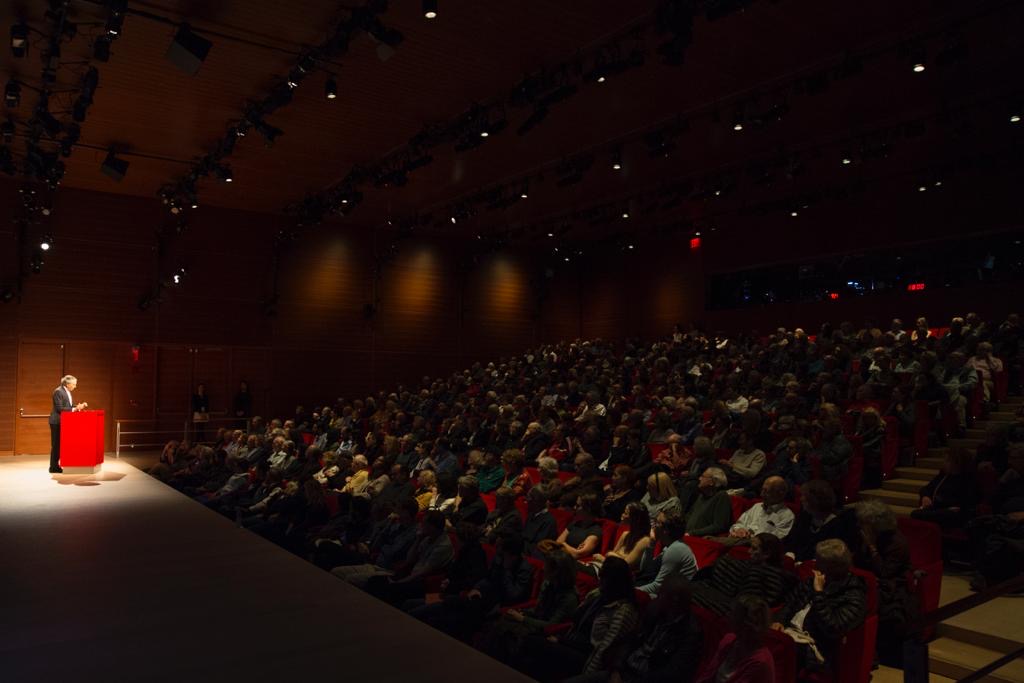Washington. Middle East Institute. October 24.
New York. Screening room at the New York Times. October 26.
On both occasions, showings of Peshmerga, my 2016 war documentary, presented under the auspices of Justice for Kurds, the American NGO that I founded with Tom Kaplan.
On both occasions, pursuit of my campaign on behalf of the Kurdish people to whom we owe so much and whom, with so much cynicism, we have offered up to the lawless forces of Erdogan and Bashar al-Assad.
And, on both occasions, full houses, audiences anxious and bewildered, just as we are, by the U.S. abandonment of its most dependable ally in the war against ISIS.
Does the killing of Al-Baghdadi, which Donald Trump announced in a tweet at the very end of our discussion at the New York Times, in any way allay this feeling of bewilderment?
Alas, it does not.
We can all agree that the disappearance of the number one of the Islamic State is good news.
We are unanimous in our admiration for the bravery and effectiveness of the commandos who carried out the mission, soldiers who are, as Senator Lindsey Graham declared soon after the assault, the pride of the United States.
No one would dream of denying the President credit for having ordered the operation.
But we might also be in accord in adding to this picture of a nation celebrating the noblest side of its military culture three not insignificant nuances.
First, that the elimination of a leader so non-operational that he had long been known only as “the phantom” will not greatly reduce the lethality of an organization that, after its defeats in Mosul and Raqqa, had promptly returned to its prior rootlessness.
Second, that because the operation was, by Donald Trump’s own admission, the culmination of a months-long hunt made possible by close cooperation with local allies on the ground, notably by the Syrian Kurds, who provided the intelligence without which no commando operation would have been possible, this success serves to emphasize how much the United States owes to its allies and how much, following its withdrawal, their support will be missed.
And, finally, that the eight Chinook helicopters had not taken off from nearby Turkey, a nation in principle allied with the United States but in fact gangrenous with a strain of radical Islam not unlike the one espoused by Al-Baghdadi. No one missed the fact that the Delta commandos had had to set up their base several hundred kilometers farther away in Erbil, in Iraqi Kurdistan. The Kurds again—back to the Kurds. Back to that alliance with the Kurdish brothers in arms, without whom nothing would have been or will be possible for the United States in Iraq or in Syria. And so we may sense the bitter irony that the United States was breaking the alliance at the very moment that it had proved its necessity.
In his surreal Sunday press conference, Donald Trump saw fit to thank the Turks for having been good enough not to interfere with the American forces. How much more fitting it would have been to ask why they had allowed the leader of the Islamic State and his wives and children to live undisturbed for so many months in the same province of Idlib, in northwest Syria, where, since their taking of Afrin in March 2018, they had maintained forward posts that allowed them to observe pretty much everything that went on.
Trump thanked the Russians, to whom nothing was owed and who did not refrain from reminding him, in a fine gesture of diplomatic cruelty, that the Russian Ministry of Defense was unaware of having lent the presumed assistance with the passage through the area of American aircraft. Not to mention their repeated statements in the same timeframe and through the end of the weekend in which they sowed doubt about the very reality of the operation and about the neutralization of the Islamist leader. If they had gone any further, they would have called Trump a liar. The death of Al-Baghdadi was fake news, they averred. The whole thing was just a storyboard for a Netflix series.
Trump even thanked the Syrians, who permitted themselves the luxury of humiliating him by observing that his belated decision to leave a few hundred troops behind to “secure the oilfields” was a violation of their sovereignty and of international law. We’re still waiting to hear how the selectively legalistic tribunes of Damascus intend to ensure that this flouted international law will be enforced. All kidding aside, I could not have hoped to express any better the idea that, in international relations, the fear one inspires cannot be separated from the respect one enjoys, and that, in this region of the world, where one’s word is sacred and counts for at least as much as one’s firepower, the United States no longer scares anybody.
The only thing Mr. Trump neglected to say is that by withdrawing U.S. protection from the Kurds and thereby consenting to have on his hands and conscience the blood of his country’s friends, as well as that of its enemies, he broke America’s promise, turned his back on its credo, and offered the zone up on a platter to its most redoubtable enemies. For those reasons, history will remember him less as the one who brought down Al-Baghdadi than as the author of one of the most stupendous strategic errors ever committed by the President of a superpower.
Bernard-Henri Lévy is a member of the editorial board of The American Interest and director of Peshmerga and The Battle of Mosul, 2016 and 2017 war documentaries of his experiences embedded with the Kurdish fighting force. Translated from French by Steven B. Kennedy.

